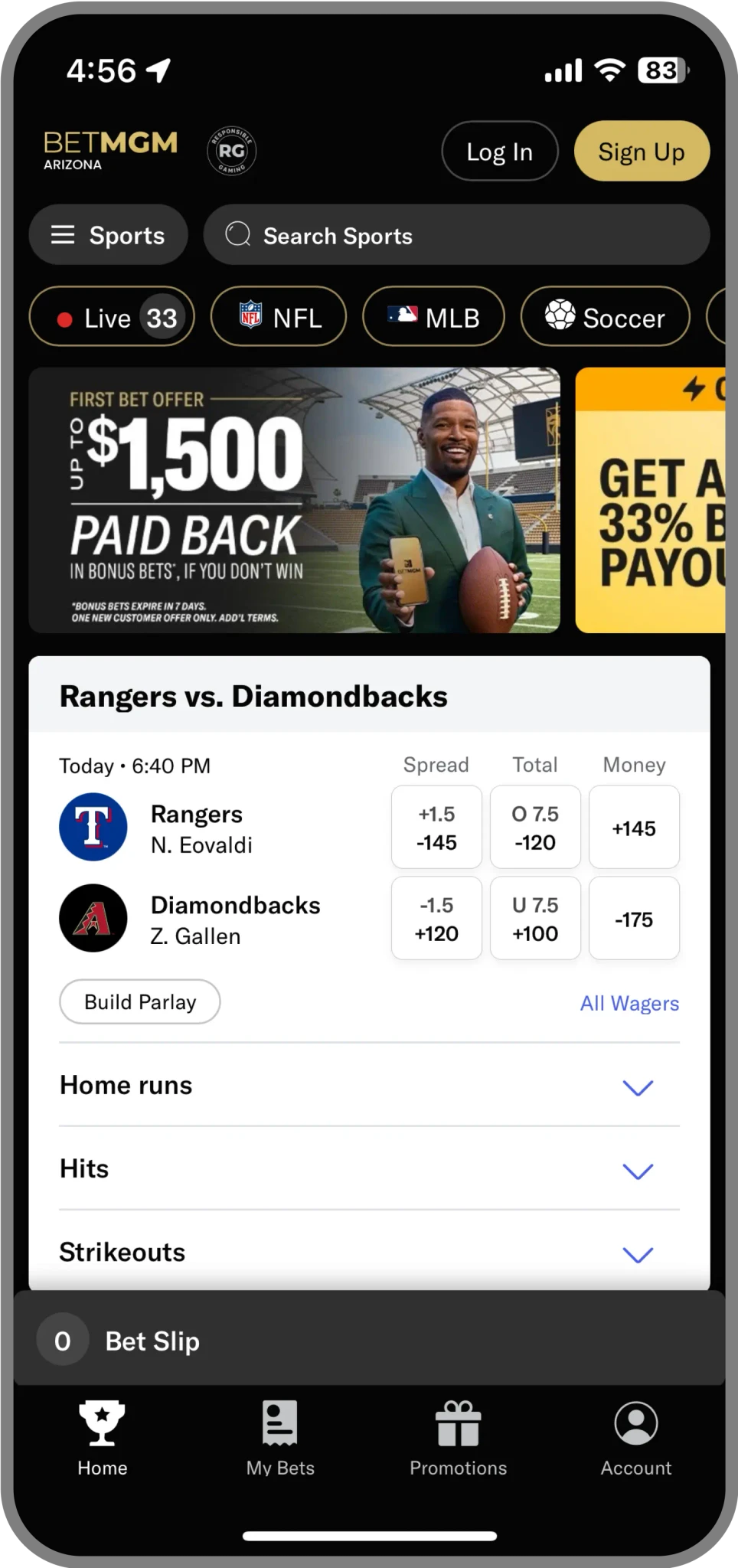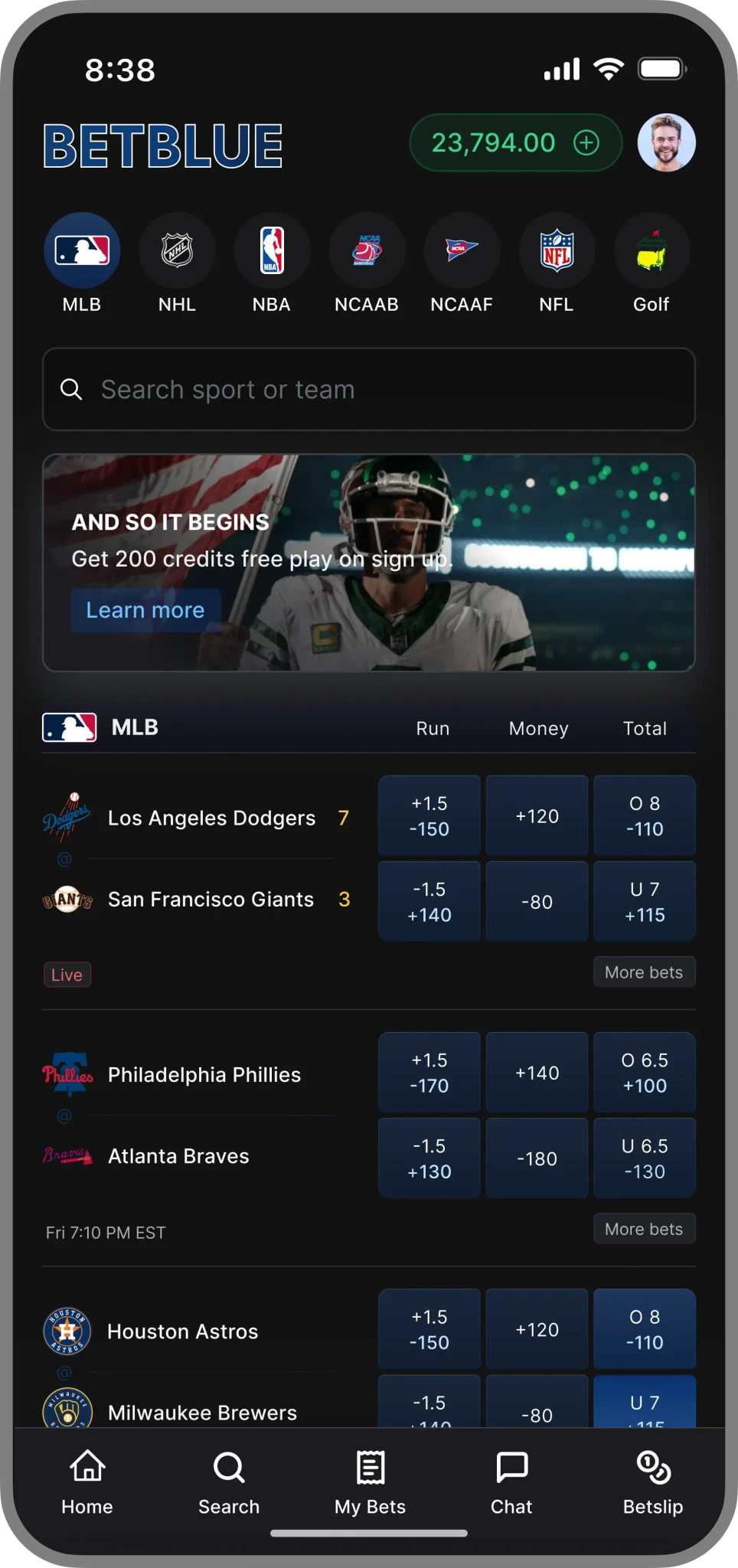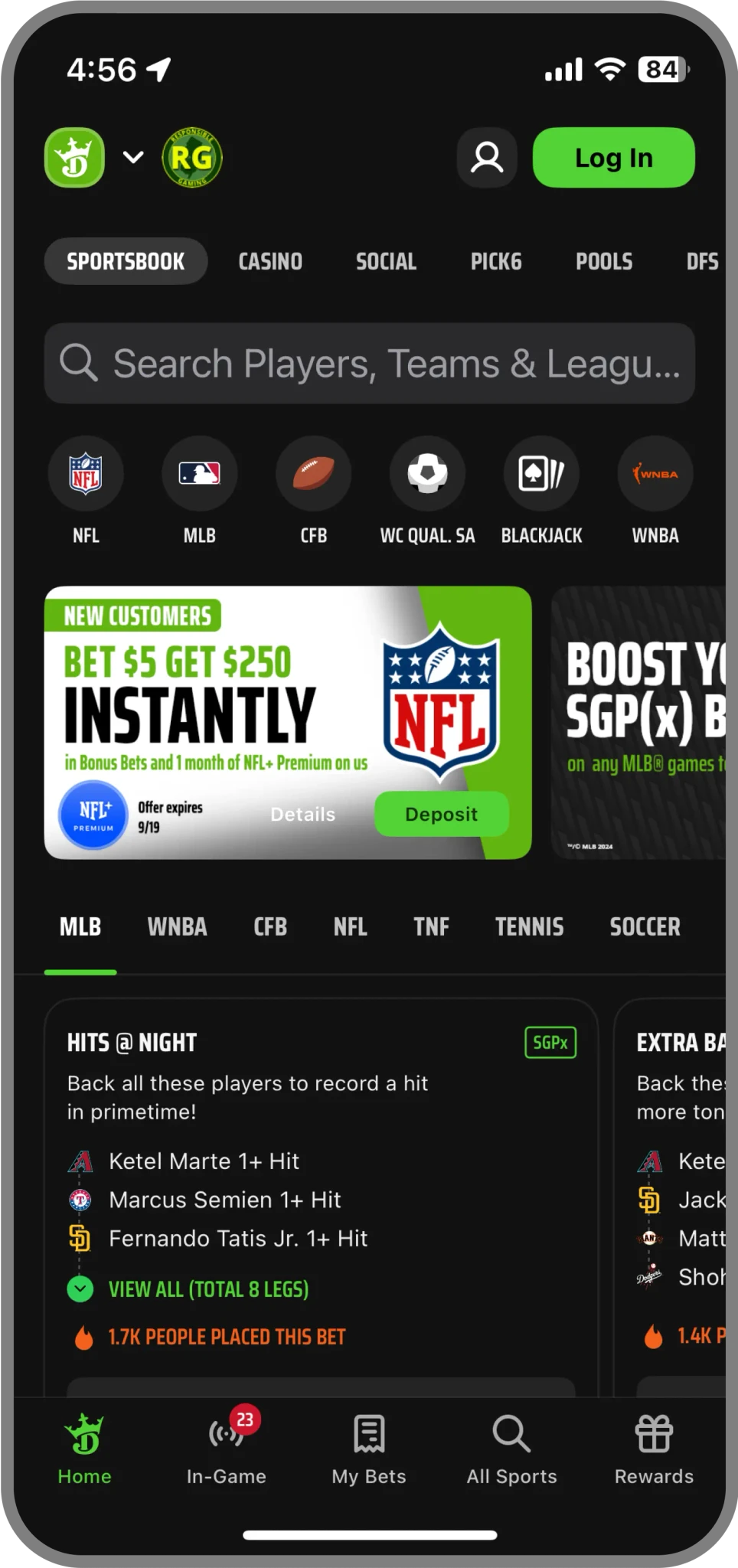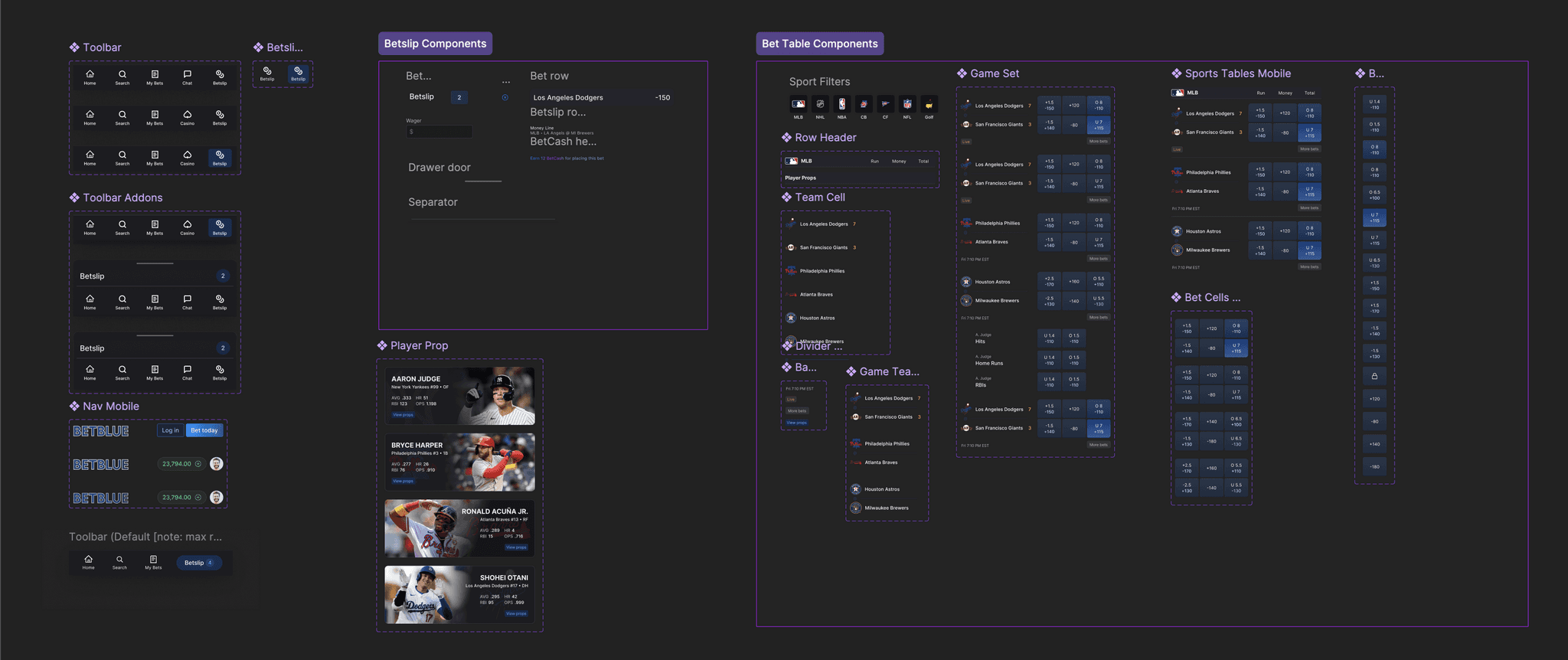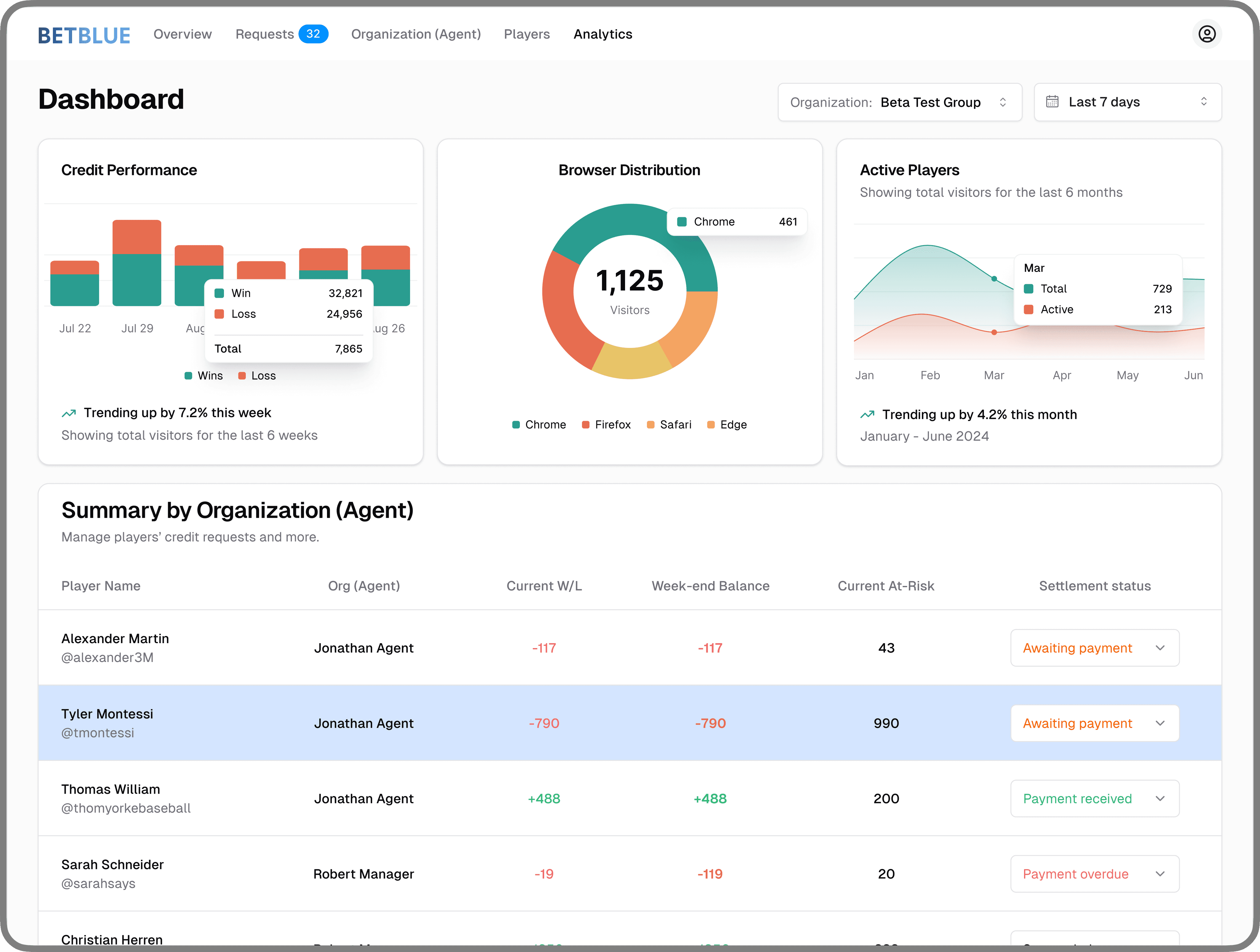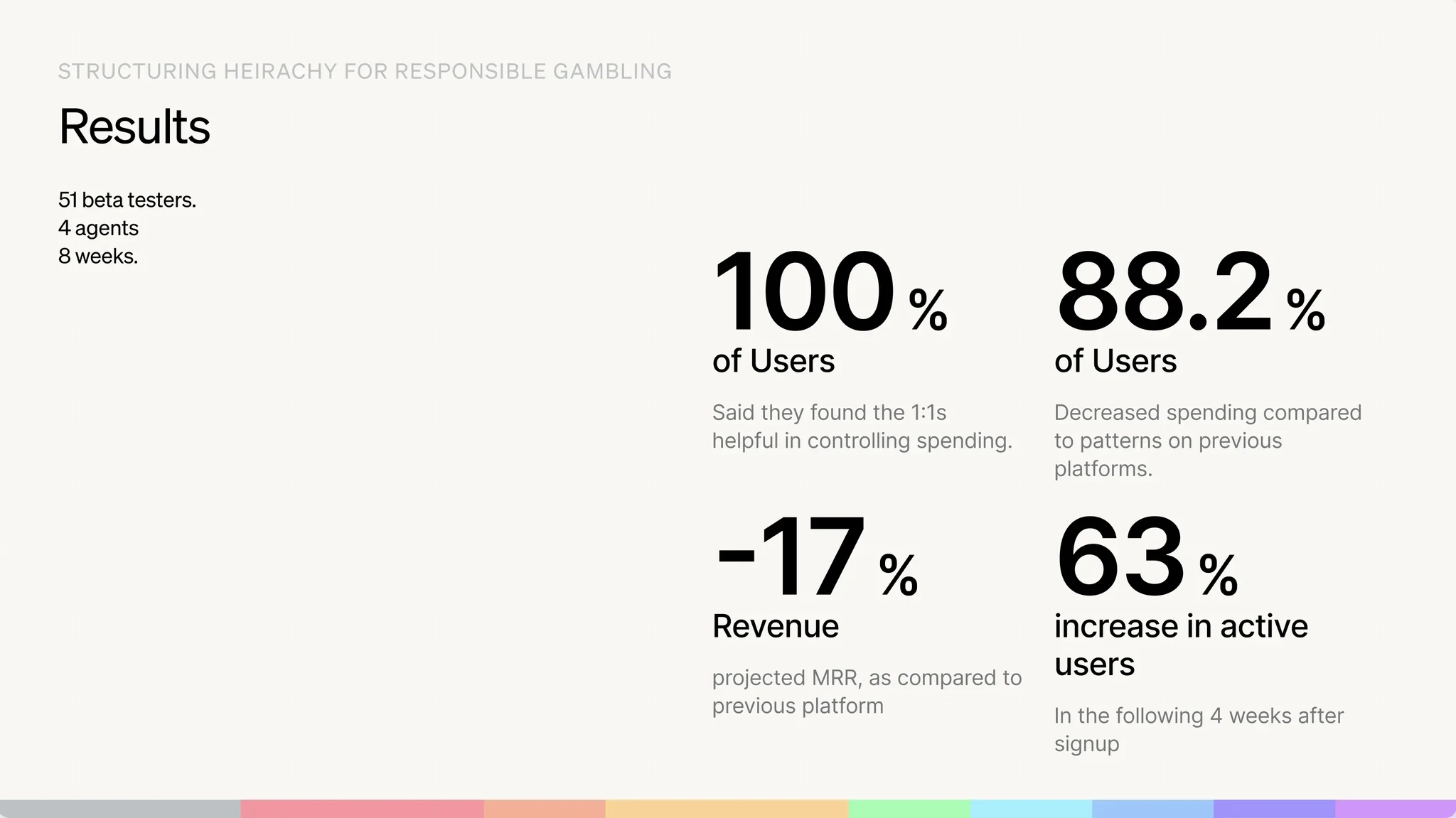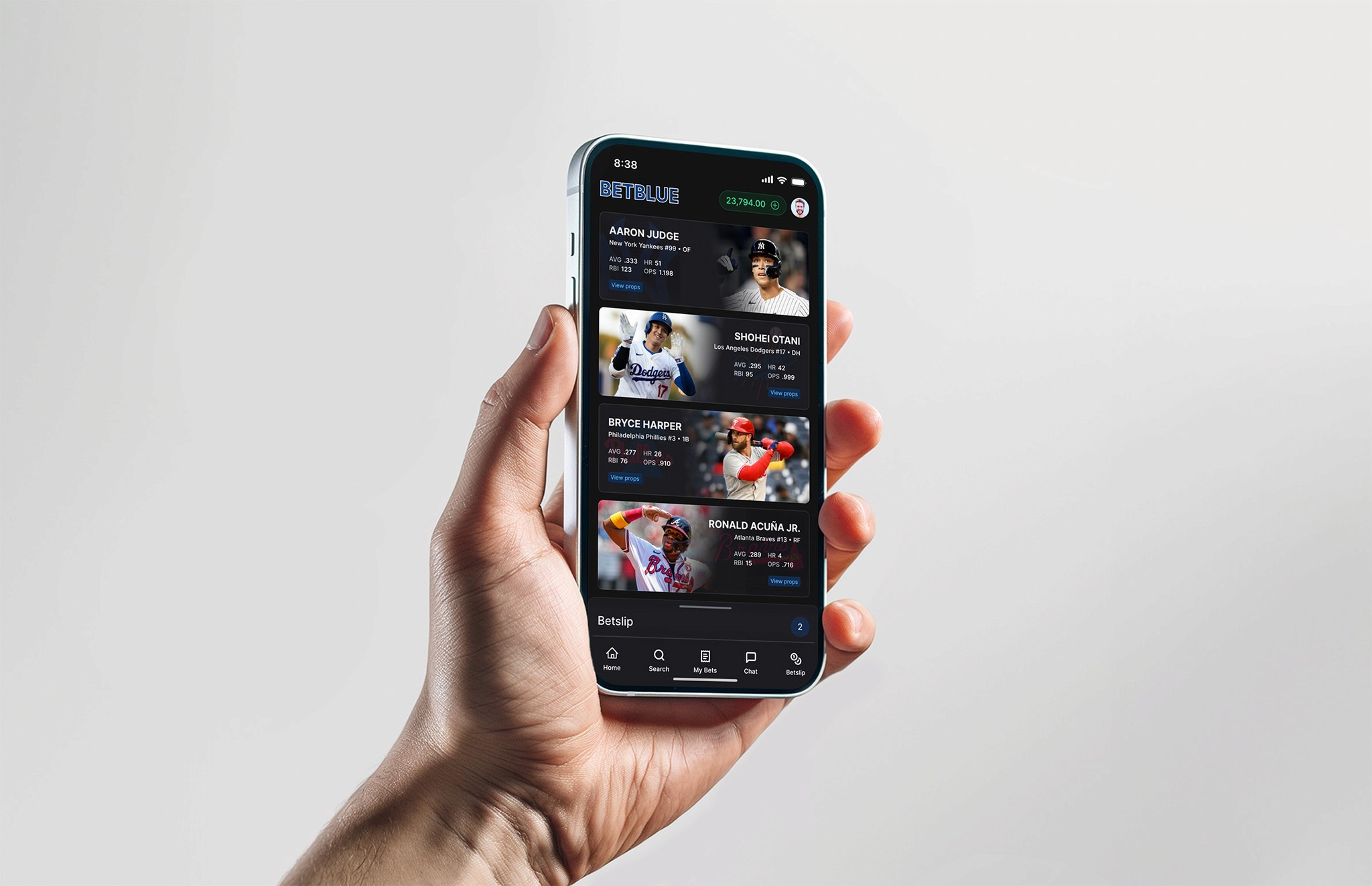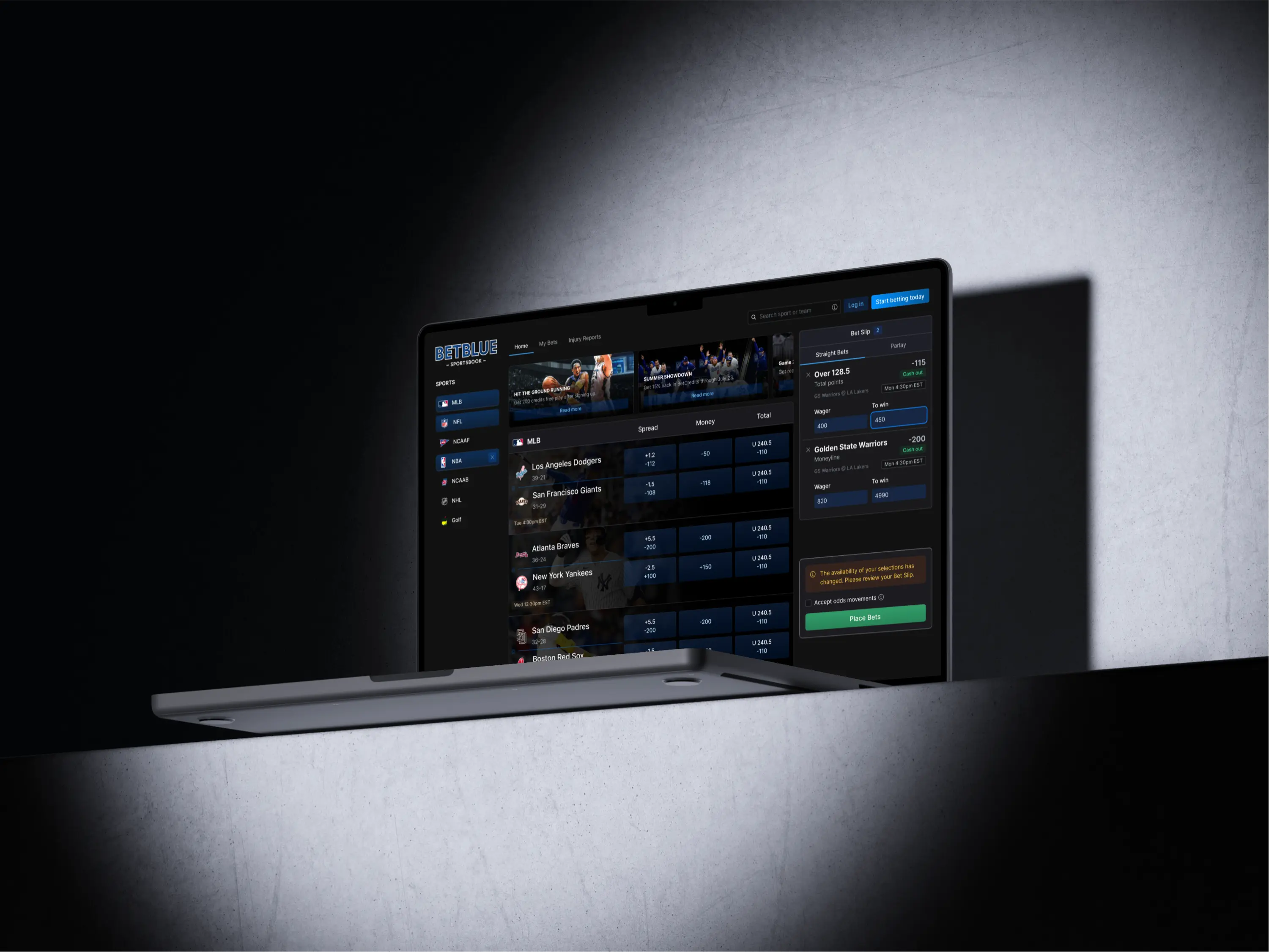Revolutionizing sports betting through accessibility, AI, and responsible gaming
Author
David Kim
Scope
Product Strategy
UI/UX Design
Full-Stack Development
Responsible Gaming
AI Integration
We partnered with a former Google executive to create codename BetBlue, a cutting-edge sports betting application. Currently in private beta, this platform challenges industry norms and sets new standards for user engagement while prioritizing responsible gaming practices.
‟My algorithm has always been: You put smart people together, you give them a lot of freedom, create an atmosphere where everyone talks to everyone else… They talk to everybody else. And you provide the best infrastructure. The best computers and so on that people can work with and make everyone partners.” —Jim Simons, Renaissance Technologies
Our challenge was to create a sports betting platform that would stand out in a crowded market while juggling duties of running a small studio.
For the design, I focused on developing a responsive, native-like web experience paired with a clean, modern UI that could not only compete with native platforms, but could have the potential to draw users away from competitors given our unique product approach.
For the engineering, I leveraged the ever-improving AI tools, together architecting the tech stack, creating the bulk of the betting logic, and implementing a large portion of the UI myself.
For the management, I always lead conversations with the client, negotiating timelines and budgets, with a smile and touch of congeniality.
To reshape our culture, I made the challenging decision to part ways with our initial contracted team in favor of assembling a network of individual contractors united by one essential quality: intrinsic motivation. I flattened the hierarchy and let engineers own their features directly. With the right incentives and understanding of our distributed team's diverse backgrounds, managing the human elements has become the most interesting part of running an agency.
Pushing Design Boundaries
Subtle reflections (created by an inner shadow with a negative y-axis) from nearby buttons create the illusion of radiant lighting from nearby sources.
An early snapshot into the Figma components
Just-in-time Admin Panel
To better focus resources on the user-facing experience, we leveraged Shadcn/UI components and v0.dev to build out our Admin Panel for our clients and agents just before beta testing.
From my Figma designs, a single engineer was able to build out the entire dashboard with analytics, keeping aligned to the tight deadline.
A Responsible Gaming System
Recognizing the ethical considerations surrounding sports betting, the client and I collaborated the development of a comprehensive responsible gaming system for our platform. Our approach integrated a direct, agent-managed strategy for enforcing responsible gaming practices, alongside betting limits and automated monitoring systems to identify potentially problematic betting patterns.
I recently gave a presentation on our beta study, aimed at promoting responsible sports betting behaviors, to apply our hypothesis. The study involved 51 beta testers and 4 agents over an 8-week period, with impressive results for responsible gambling outcomes.
Key findings:
100% of users reported that one-on-one interventions helped them control their spending
88.2% of users showed reduced spending compared to their previous betting patterns
While revenue (MRR) decreased by 17% compared to the previous platform, this aligns with the goal of promoting healthier gambling habits
Though there was a decrease in revenue (-17%), we found the platform saw a 63% increase in active users in the 4 weeks following signup because the users said they felt "more connected" to their betting group and found it "more fun."
Now at over 200 early access users, we have not seen a significant increase in spending in users (as compared to their previous platform), though our referral rate remains above 60%.
Looking into the future
We are currently developing an AI-powered algorithmic betting engine, similar to high-frequency trading used by financial firms. This engine analyzes vast amounts of real-time data to identify favorable odds and autonomously place bets, optimizing outcomes for users.
By continuously learning from betting patterns and market conditions, the engine enhances accuracy and increases profitability potential while offering a competitive edge in the sports betting market.


